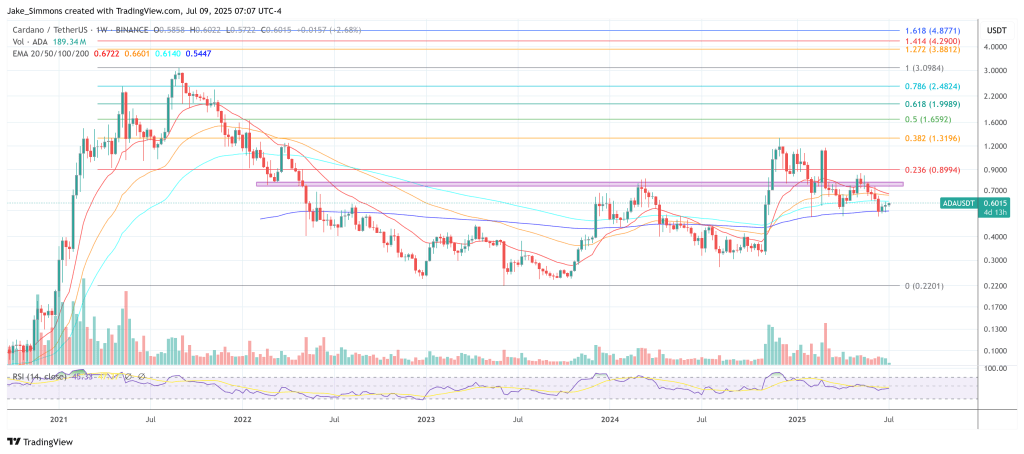Cardano’s Bold Move: Dropping Reeve Could Revolutionize Enterprise Finance by 2025
Cardano just pulled the plug on Reeve—and the corporate finance world is scrambling to adapt.
Why this matters for legacy systems
Enterprise blockchain adoption has been crawling at a snail's pace—until now. Cardano's decision to cut ties with its legacy oracle solution signals a ruthless pivot toward institutional-grade infrastructure. No more baby steps.
The compliance gambit
By ditching middlemen, Cardano's betting big on direct enterprise integration. Banks hate it. CFOs are sweating. And the usual 'blockchain consultants'? Suddenly unemployed.
Price action meets practicality
While traders obsess over short-term volatility, the real story's in the codebase. Cardano's latest upgrade doesn't just move markets—it might finally move actual corporate ledgers.
One cynical footnote: Wall Street will still find a way to charge 2% management fees on this 'disruptive' tech.
Cardano Foundation Releases Reeve
“Reeve enables businesses to improve transparency, simplify reporting, and build trust with verifiable financial data,” the Foundation wrote in its launch statement, framing the product as an answer to data-siloing and fraud risks that plague conventional platforms. It “doesn’t just record financial data; it forges an immutable and transparent ledger,” the same notice added, positioning the tool as a trust LAYER rather than a parallel bookkeeping stack.
Under the hood, Reeve—also referred to in its repositories as “Ledger on the Blockchain (LOB)”—is published under an Apache 2.0 licence and ships as a Spring-Modulith codebase. The architecture splits responsibilities across discrete Java modules: a reporting core, blockchain publisher and reader services, a NetSuite Altavia adapter, and a forthcoming notification gateway. By decoupling each function, Cardano engineers intend to make it simple for integration partners to graft additional ERP connectors or ESG-reporting extensions without touching consensus logic.
The technical rationale is spelled out directly in the project’s README: “The recording of transactions on-chain, immutable and tamper-proof, creates a verifiable trail of the financial activities and makes audits faster, less expensive and more reliable.” That audit focus aligns with Cardano’s earlier messaging; the Foundation’s 2024 Activity Report disclosed a “soft launch” of Reeve as part of its push toward operational resilience and real-world utility.
“We were pleased to soft launch Reeve, an enterprise-grade accounting function that enables organizations to enhance transparency and build trust through secure and verifiable financial data,” CEO Frederik Gregaard wrote in January.
The cardano Foundation is soliciting pilot partners “ready to re-imagine their business processes with blockchain,” promising bespoke integration support in exchange for real-world feedback. Early cohorts are expected to include NGOs looking to bolster donor transparency, publicly listed corporations wrestling with ESG disclosures, and governmental bodies seeking to modernize procurement audits.
Reeve’s open-source release (tag 1.0.0 on GitHub) means developers can begin testing today, but the Foundation stresses that commercial roll-outs will proceed in controlled phases. If the pilots validate its cost-saving thesis—fewer reconciliations, instant evidence chains, automated attestation—the project could mark a rare crossover moment where enterprise finance moves from proof-of-concept to production blockchain.
At press time, ADA traded at $0.60.


